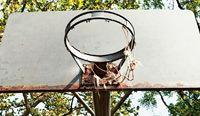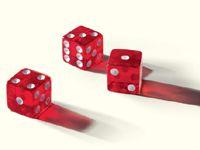Decoded (48 page)
Authors: Jay-Z
Tags: #Rap & Hip Hop, #Rap musicians, #Rap musicians - United States, #Cultural Heritage, #Jay-Z, #Entertainment & Performing Arts, #United States, #Music, #Rich & Famous, #Biography & Autobiography, #Genres & Styles, #Composers & Musicians, #Biography

4.
When cops showed up it was dump and run time.
5.
The ambition of a drug-seller was a paradox: to stop selling drugs. To make enough loot to skate—graceful, easy—away from the whole scene.
6.
Selling weight “wet” meant to sell the crack so fast it didn’t even have time to dry from the cooking. It’s cheating, but I justify it in the next line.
7.
There’s a saying, “the narcissism of small differences,” that applies exactly to the way we divvied up the hood: It was projects versus projects, and then building versus building, clique versus clique, brother versus brother.
8.
Well, exactly: Tompkins niggas might’ve seemed somehow different from Marcy niggas, but we were all in the same game, after the same shit, using the same techniques.
9.
Hammers are ringing, drugs are being sold, cops are rolling up, girls are being fought over, fast money’s being made. And no one’s over thirty. It’s a recipe for conflict.
10.
“Boosters” are shoplifters who’d slide into department stores, stuff a pile of sweaters under their worn-out goose downs, and then sell them for half price back on the streets.
11.
Where I’m from, on the streets I’m describing, all you had was your word—it was everything. If you pretended to be something you weren’t, your card would get pulled quick. The legit world has a million ways to slip out of the truth; ironically, the underworld depends on a kind of integrity.
12.
When I was a kid the debate was LL versus Run-DMC, or, later, Kane versus Rakim. Next year it might be Drake versus J. Cole. It’s a tribute to how deeply felt hip-hop is that people don’t just sit back and listen to the music—they have to break it down, pick the lyrics apart, and debate the shit with other fans who are doing the same thing. When people talk about forms of media, sometimes they compare lean-forward media (which are interactive, like video games or the Internet) and lean-back media (which are passive, like television or magazines). Music can be lean-back sort of media, it can just wash over you or play in the background—but hip-hop is different. It forces people to lean forward—lean right out of their chairs—and take a position.
13.
The “drug czar” here obviously isn’t the one that works for the government.
14.
“R-and-R” stands for “reverse and remand,” an order from a court to reverse a decision or refer it back to a lower court.
15.
“Ball” has three meanings: to fuck, to spend money, and to play basketball. I’m talking about playing ball here, but I’m nodding to the other meanings, too. “Breeding” rhyme stars connects back directly to the rest of this verse: The drugs and guns, the fun and the risk, and, most of all, the survival-of-the-fittest competition, is enough pressure to crush coal into diamonds. It’s an idealized, almost romantic, way to look at this life, a sudden reverse after the song’s bleak beginning.

16.
This is a line from a remix I did with Puff Daddy (as he was then known) and Biggie for a song called “Young G’s.”
17.
The churches really were the flakiest, whether they were storefronts or big old-school churches with vaulted ceilings and steeples. They were kept alive with the donations of poor folks and hadn’t seen a paint job in a minute. But more than that, they were full of fake prophets and money-snatching preachers.
18.
When your prayers aren’t answered, you start to think that maybe there’s no one there to answer them. Day after day, year after year, generation after generation, the response seems to be silence—it tests your faith.
19.
I’m triangulating my location. The block from hell is a double entendre: my block is in close proximity to the worst of the worst, but it’s also “the block from hell,” like it emerged from a flaming pit. “Not enough shots from stray shells,” means that where I’m from no one is really safe from a stray bullet. The last line—“an ounce away from a triple beam”—is a drug-game detail that niggas in the streets picked up on immediately. That ounce away is the difference between struggling and making real money, and a lot of hustlers stay an ounce away and never graduate. But the aspiration to move up to the triple-beam is real, and the handheld weight scale is symbolic of that street-level hustler’s hunger—you can hold his weight in your hand, but his hunger is enormous.

20.
I wrote this at a time when I felt the government was irrelevant to the ways we organized, resolved conflict, and took care of ourselves. “Politic” is slang for the kind of talk that works things out.
21.
“In 2001, the life expectancy in New York City’s poorest neighborhoods was 8 years shorter than in its wealthiest neighborhoods.” —“Health Disparities in New York,” New York City Department of Health.
22.
The stakes are relatively low once you leave the streets. A bad review might hurt your feelings, but really who gives a fuck compared to the equivalent on the streets.
23.
This is not the only time I interrogate God; in songs like “D’Evils” (p. 50), “Lucifer” (p. 286), and “Beach Chair” (p. 282) I do something similar, sometimes in a confrontational way, sometimes in a more plaintive way. But these lines aren’t about God in the traditional sense, they’re almost questions back to myself. Do I forgive guys who live just like me? It’s a question that haunts a lot of us—and the song is a defense, a case that in some ways we’re just products of our environment. But I’m not convinced that it’s that simple.
24.
The “promise fulfilled” is the promise I made to God—or to myself—in the earlier line, that if I got successful, I’d let them know “exactly what takes place in the ghetto.” This song is the promise’s partial fulfillment, but the job wasn’t done—I kept trying to get deeper and deeper into the story from song to song.
25.
“Clap boards” is more basketball talk—the image catches a player in the air, slapping the backboard while he grabs a rebound, the sound ricocheting through the project courtyards like a gunclap.
26.
More blasphemy! Comparing the silent god Jehovah with the rap lords whose voices never left us.
27.
This line feels kind of thrown off, but it’s maybe the strangest line on the whole record. I’ve been describing a place that’s full of violence, where the scramblers on the corner are trying to make enough money to move, where even God doesn’t visit, but the irony is that the stories that came out of this place—
a block from hell
—would make millions for the storytellers.
28.
It’s hard to argue with this sentiment once you get the context. In the life I’m describing, a night’s sweetness is a treasure and worrying about the cost of it is a waste of time.
29.
“Leek” is embalming fluid mixed with PCP. On the West Coast, where it’s probably more popular, they call it “sherm.” It’s famous for making people lose their minds, jump off roofs, strip themselves naked in the street and start running. It’s a suicidal high.
30.
I’m describing a game of Cee-Lo—deuce, “three dice and shoot the five,” “hit ’em with trips”—a game played with three dice. On the corner we’d kill time with Cee-Lo—all you need is some dice—but the money is real, so sometimes the stakes expand.
31.
The song climaxes with the narrator winning a dice game, stepping his game up to platinum, and keeping guard with a nine, while “niggas show love.” Before you get too happy, though, it brings us back to an image of paranoia and death, the cloud that hangs over a hustler’s head forever.

MINORITY REPORT
1.
These are all actual clips from the news coverage of Hurricane Katrina.
2.
“Long before the storm, New Orleans was by almost any metric the worst city in the United States—the deepest poverty, the most murders, the worst schools, the sickest economy, the most corrupt and brutal cops.” —Dan Baum,
Nine Lives: Life and Death in New Orleans.
3.
I wanted to do a song about Katrina, but I also wanted the song to be about how what we saw during the hurricane was just an extreme example of the shit that was already happening in New Orleans. The young guys there were motivated by the same desperation as the guy who loots the store after the hurricane for diapers and formula. Both are just trying to survive in a storm. If you focus only on the criminal act and lose sight of the whole chain of cause and effect, you get a distorted, unfair picture. People are often pushed into desperate acts and bad choices by circumstances.
4.
I had to wonder about all those dramatic photos shot from helicopters swooping over people stranded on roofs. I have no idea if those journalists could’ve picked up the people on the roofs after they’d taken their photo, but it seemed like a metaphor for what was happening all over the country: We were all watching the story unfold but doing nothing.

Other books
Blue and Alluring by Viola Grace
The Thread That Binds the Bones by Nina Kiriki Hoffman, Richard Bober
The Korean War by Max Hastings
Every Soul by LK Collins
The Cairo Affair by Olen Steinhauer
Blazing the Trail (Sunshine & Shadow Book 5) by Alie Williamson
The Diamond Thief by Sharon Gosling
The Fortress of Solitude by Jonathan Lethem
Rekindled by Susan Scott Shelley
State of Decay by James Knapp